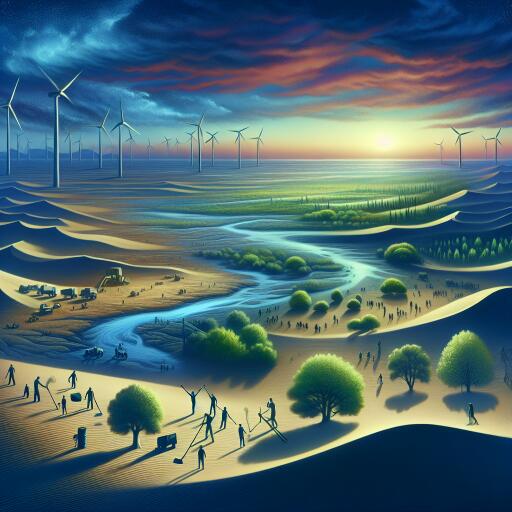
Exploring the Roots and Impact of ‘Dune’ on Environmental Consciousness
Frank Herbert’s ‘Dune,’ a seminal work in science fiction, has left an indelible mark on the genre, influencing generations of storytellers, visionaries, and environmentalists. From the epic adaptations by Denis Villeneuve to the inspiration it provided for pioneers like Elon Musk, ‘Dune’ stands as a testament to Herbert’s vision of the future—one deeply entwined with ecological themes.
At its core, ‘Dune’ was never about escaping Earth’s ecological crises, but confronting them. Herbert sought to weave a narrative that mirrored the environmental tumult of his times, drawing parallels to the nuclear brinkmanship and rampant pollution that characterized the early 1960s.
The novel emerged as a symbol for the nascent environmental movement, serving as both inspiration and beacon for those looking to the new science of ecology for answers. The term “ecology” itself, while coined decades earlier, had only begun to permeate public consciousness by the time ‘Dune’ was published, making Herbert’s work all the more pioneering.
Herbert’s fascination with ecology was kindled not through formal education but through a genuine interest in indigenous conservation practices. His extensive research into the Pacific Northwest’s tribal methods of land stewardship profoundly influenced the ecological underpinnings of ‘Dune.’ The intricate relationship between humanity and its environment, as maintained by the indigenous tribes, found a place in the fabric of Herbert’s universe.
The narrative of the planet Arrakis, with its precious spice and the battles that ensue over its control, draws surprising parallels to Earth’s own history of resource exploitation and environmental degradation. The spice of ‘Dune,’ akin to the guano deposits in the 19th century, serves as a powerful metaphor for the perils of overexploitation.
‘Dune’s’ portrayal of the desert planet Arrakis and its inhabitants, the Fremen, underscores a synthesis of ecological science and indigenous wisdom. This blend exemplifies a profound respect for the delicate balance of ecosystems and the dire consequences of their mismanagement. The Fremen, with their deep-rooted connection to Arrakis, embody the principles of ecological stewardship, echoing the real-world practices of indigenous peoples.
The ecological themes woven into ‘Dune’ resonated with the burgeoning environmental movement of the 1960s, offering a narrative framework that highlighted the interconnectedness of all life forms and the importance of sustaining natural environments. The novel’s emphasis on the consequences of ecological imbalance struck a chord with readers, amplifying awareness of environmental issues and the need for conservation.
Despite its age, the relevance of ‘Dune’s’ ecological message has only intensified. In an era of escalating environmental crises, Herbert’s cautionary tale serves as a stark reminder of the need for sustainable interaction with our planet. The visionary work continues to inspire environmentalists and ecologists, serving as a cultural touchstone for discussions on the relationship between humanity and the natural world.
As ‘Dune’ continues to captivate audiences, its legacy as a catalyst for environmental awareness endures. The novel’s intricate exploration of ecology, power, and human nature offers invaluable insights into the challenges and opportunities that lie in our relationship with the planet. In the end, ‘Dune’ is not just a story about a distant world but a mirror reflecting our own environmental dilemmas and the urgent need for collective action to address them.
The discussions and themes sparked by ‘Dune’ serve as a vital reminder of literature’s power to influence thought and action on environmental issues. As we face the ecological challenges of our own time, the lessons of ‘Dune’ remain as relevant and compelling as ever.





Leave a Reply